Is Your Child’s Sleep or Focus, Being Affected by How They Breathe?
Expert myofunctional therapy addressing mouth breathing, sleep disruption, and jaw/airway development concerns. Get personalized care led by Dr. Leslie Pasco (Licensed Dentist, Orofacial Myologist, Buteyko Breathing Instructor) and her team of professionals. Click the button below, take the quiz and find out if your child is at risk.
No-Pressure Consultation • Personalized Treatment Plans • Virtual Therapy Available
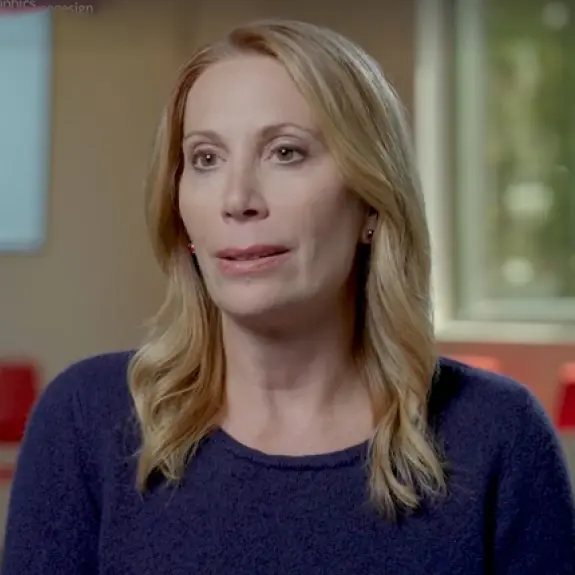
Science-Backed Solutions for Lasting Results
Our therapy programs are grounded in peer-reviewed research and clinical evidence. We don’t just treat symptoms—we address the underlying causes of breathing, sleep, and developmental challenges.
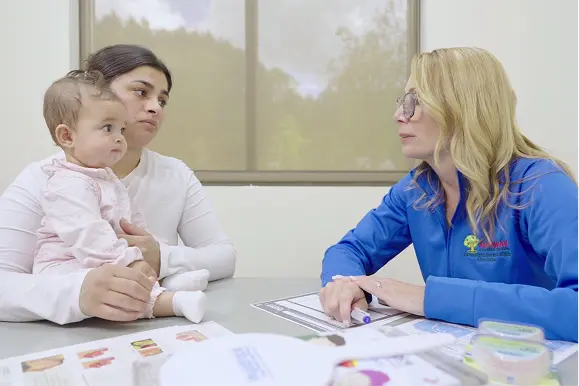
Research-Driven Methods
Techniques validated by clinical studies in sleep medicine and airway development
Personalized Treatment Plans
Every child receives a customized therapy program based on their unique needs
Measurable Outcomes
Track progress with clear milestones and objective improvements in breathing and sleep
Specialized Programs for Your Child's Development
Evidence-based therapy programs designed to address the root causes of sleep, breathing, and developmental challenges
Pediatric Myofunctional Therapy
Strengthen oral and facial muscles to improve breathing, swallowing, and speech patterns. Addresses tongue posture, lip seal, and proper swallowing mechanics.
Sleep & Behavior Support
Tackle snoring, restless sleep, and behavior challenges linked to poor sleep quality. Buteyko breathing techniques for better rest and daytime focus.
Guided Jaw Growth & Airway Development
Support natural jaw expansion and airway development during critical growth years. Prevent long-term orthodontic and breathing complications.
Is Your Child Showing These Signs?
These common symptoms may indicate underlying airway or myoway functional concerns that can be addressed with proper therapy
Mouth Breathing
Breathing through the mouth instead of the nose, especially during sleep or at rest
Snoring & Sleep Disruption
Loud snoring, restless sleep, or waking up frequently during the night
Behavioral & Focus Concerns
Difficulty concentrating, hyperactivity, or mood changes linked to poor sleep
Narrow Palate
A high, narrow roof of the mouth that can restrict airway development
Airway Restriction
Limited nasal breathing capacity or enlarged tonsils affecting airflow
Jaw Growth Imbalance
Breathing through the mouth instead of the nose, especially during sleep or at rest
Early Intervention Makes All the Difference
Don’t wait for these concerns to become bigger problems. Schedule a consultation to learn how we can help your child breathe better and sleep soundly.
Collaborate with Dr. Leslie Pasco for Better Patient Outcomes
Are you a dentist, orthodontist, pediatrician, or ENT specialist? Partner with MyoWay Centers to provide comprehensive care for your patients with airway myofunctional concerns.
- Referral partnership opportunities
- Continuing education presentations
- Evidence-based treatment protocols
- Collaborative case management

Hear from real parents of patients
- VEREFIED
“We’ve been in treatment now for 6 months and so far she is sleeping through the night (with no bathroom visits or night terrors) and had no cavities at her last dentist visit! I know it’s helping so far and am excited to see more as we get further along in treatment.”
MyoWay Parent
- VEREFIED
“We’ve been in treatment now for 6 months and so far she is sleeping through the night (with no bathroom visits or night terrors) and had no cavities at her last dentist visit! I know it’s helping so far and am excited to see more as we get further along in treatment.”
MyoWay Parent
- VEREFIED
“We’ve been in treatment now for 6 months and so far she is sleeping through the night (with no bathroom visits or night terrors) and had no cavities at her last dentist visit! I know it’s helping so far and am excited to see more as we get further along in treatment.”
MyoWay Parent
- VEREFIED
“We’ve been in treatment now for 6 months and so far she is sleeping through the night (with no bathroom visits or night terrors) and had no cavities at her last dentist visit! I know it’s helping so far and am excited to see more as we get further along in treatment.”
MyoWay Parent
Posted onTrustindex verifies that the original source of the review is Google. My 4 year old daughter had a wonderful experience at MyoWay. The staff was so warm and welcoming. And they taught her how to do exercises that would help her to breathe correctly and get better sleep. If you are considering orthodontic work for your child, I recommend that you at least do a consult with MyoWay to see if physical therapy could help instead.Posted onTrustindex verifies that the original source of the review is Google. The staff is really well informed and sweet. My daughter has heightened anxiety and sleep deprivation and the therapist was very good with her and got her to open up! Even as a child with sensory issues she is willingly able to utilize the prescribed appliance to help her on her journey to more healthy breathing. I highly recommend them to anyone experiencing neurodivergent or behavioral issue journeys.Posted onTrustindex verifies that the original source of the review is Google. I found MyoWay after a recommendation from the pediatric dentist. Before therapy my daughter had tantrums, restless sleep, snoring, and even difficulty with pronouncing some letters. Since starting therapy she barely moves at night, is snore free, and a much happier child without the tantrums!! Within a month of starting the therapy she was able to pronounce her “L”s more clearly and her face shape has even become more defined. I would recommend MyoWay to everyone! Ashley is so nice and so good with toddlers and making the therapy fun!Posted onTrustindex verifies that the original source of the review is Google. We are so thankful for Ashlee at MyoWay! We were recommended for therapy after our daughter’s lip tie release and as a preventive measure for a possible tongue tie release. We have seen much more tongue movement since her therapy and I don’t think we’ll need to end up getting her tongue tie revised! Our girl is 11 months now and she is swallowing better which has helped tremendously with her eating more solids. Ashlee is knowledgeable in her field and more importantly, cares about her patients. The entire staff is so kind and personable. They truly want the best for everyone that walks through their door. We can’t wait to see everything else our daughter masters with the help of Ashlee!Posted onTrustindex verifies that the original source of the review is Google. MyoWay Centers for Kids is backed by a professional, thoughtful, and passionate team of experts dedicated to improving the health and wellness of our region's children! Dr. Pasco built this business for all the right reasons, and her patients are in good hands!Posted onTrustindex verifies that the original source of the review is Google. I cannot say enough good things about MyoWay Centers! Ashlee, in particular, has been incredibly helpful and caring throughout our experience. My 2-year-old son has had significant issues with his breathing, and the improvements we've seen since starting his treatment here have been remarkable. Ashlee's dedication and compassionate approach have made a world of difference for us. I highly recommend MyoWay Centers to anyone seeking top-notch care for their loved ones. Thank you, Ashlee and the entire MyoWay team, for your amazing work!Load more
Frequently asked questions
How is MyoWay different from traditional orthodontics?
MyoWay Centers for Kids does not provide orthodontic treatments, but rather complements orthodontics with myofunctional therapy. Traditional orthodontics often focuses on straightening teeth once they have already come in crooked (the “symptom”). MyoWay focuses on the “root cause”—ensuring the jaw is wide enough and forward enough to fit all the teeth and, more importantly, to support a wide-open airway for optimal breathing.
My child is only 4 or 5—isn't it too early to start?
Actually, we see children as early as birth for screenings! The majority of facial development is happening in the first 2 years of life. Age 4-5 is the “Golden Window.” Because 60% of growth happens by age 6, so intervening now allows us to use your child’s natural growth hormones to guide the jaw. It is much easier to guide growth than it is to fix a finished structure later in life.
My child has special needs (ASD/Sensory Processing). Can they do this?
Yes! In fact, these children often benefit the most from airway therapy. Improved oxygenation and sleep quality can lead to better emotional regulation and reduced sensory meltdowns. We tailor our approach to each child’s specific sensory and behavioral needs to ensure a positive experience.
Will this replace the need for braces?
MyoWay Centers for Kids does not provide orthodontic treatments, but rather complements orthodontics with myofunctional therapy. However, in many cases, early airway and jaw intervention significantly reduces the time a child needs to spend in braces later. For some, it may eliminate the need for braces entirely by creating enough space for the teeth to erupt naturally.
Can my child do this while seeing other specialists?
Absolutely. We often work as part of a “Dream Team” alongside Pediatricians, ENTs, Orthodontists, and Speech Therapists. Proper jaw structure and tongue posture often make these other therapies more effective and help prevent “relapse” after braces are removed.
Do I pay for every individual visit, or is it a program package?
We utilize All-Inclusive Program Packages rather than a “pay-per-visit” model. We’ve found that pay-per-visit models are not only more costly over the long term, but they often lead to fragmented care and lower follow-through. Clinical success in myofunctional and airway therapy depends on consistency; by bundling the care into a single program, we ensure your child receives every necessary step for success without financial friction. This model provides transparent, affordable pricing and significantly higher success rates for our patients.
Why doesn't insurance usually cover this therapy?
Most insurance models are “reactive” rather than “preventative.” Insurance companies often want to wait until a child shows severe, late-stage symptoms—such as full Obstructive Sleep Apnea or major skeletal deformities—before they authorize coverage. Unfortunately, by the time those symptoms meet insurance criteria, the most critical windows for easy, non-invasive growth guidance have often passed. We believe in “proactive” care: treating the root cause now to avoid the invasive surgeries and chronic health issues that insurance eventually pays for later.
Can I get reimbursed if I have insurance?
Yes. While we are a direct-pay facility to ensure your child’s care is never compromised by insurance restrictions, we provide all the necessary information and itemized documentation required for you to seek direct reimbursement from your insurance provider. We aim to make this process as seamless as possible for your family.
Explore The Research
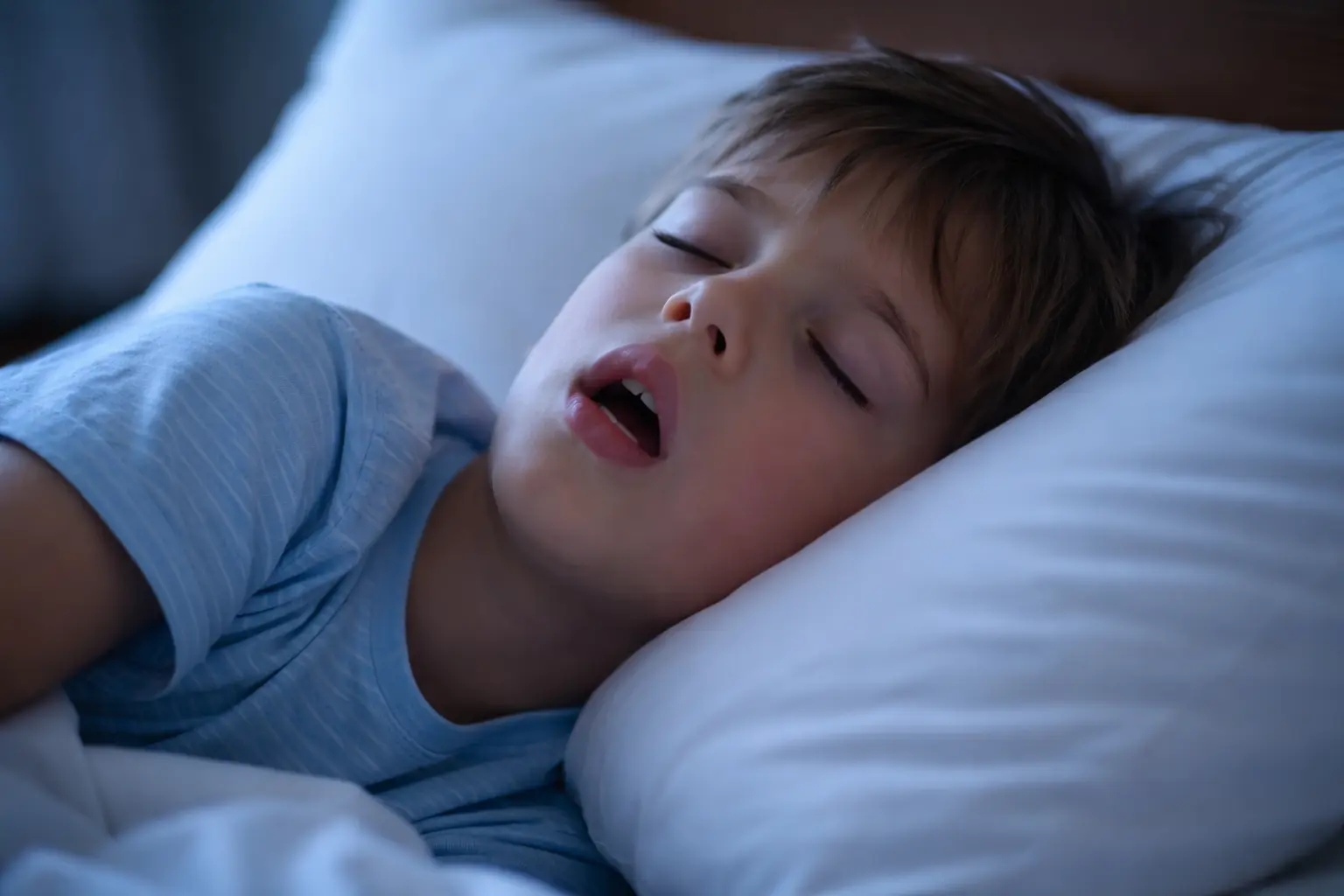

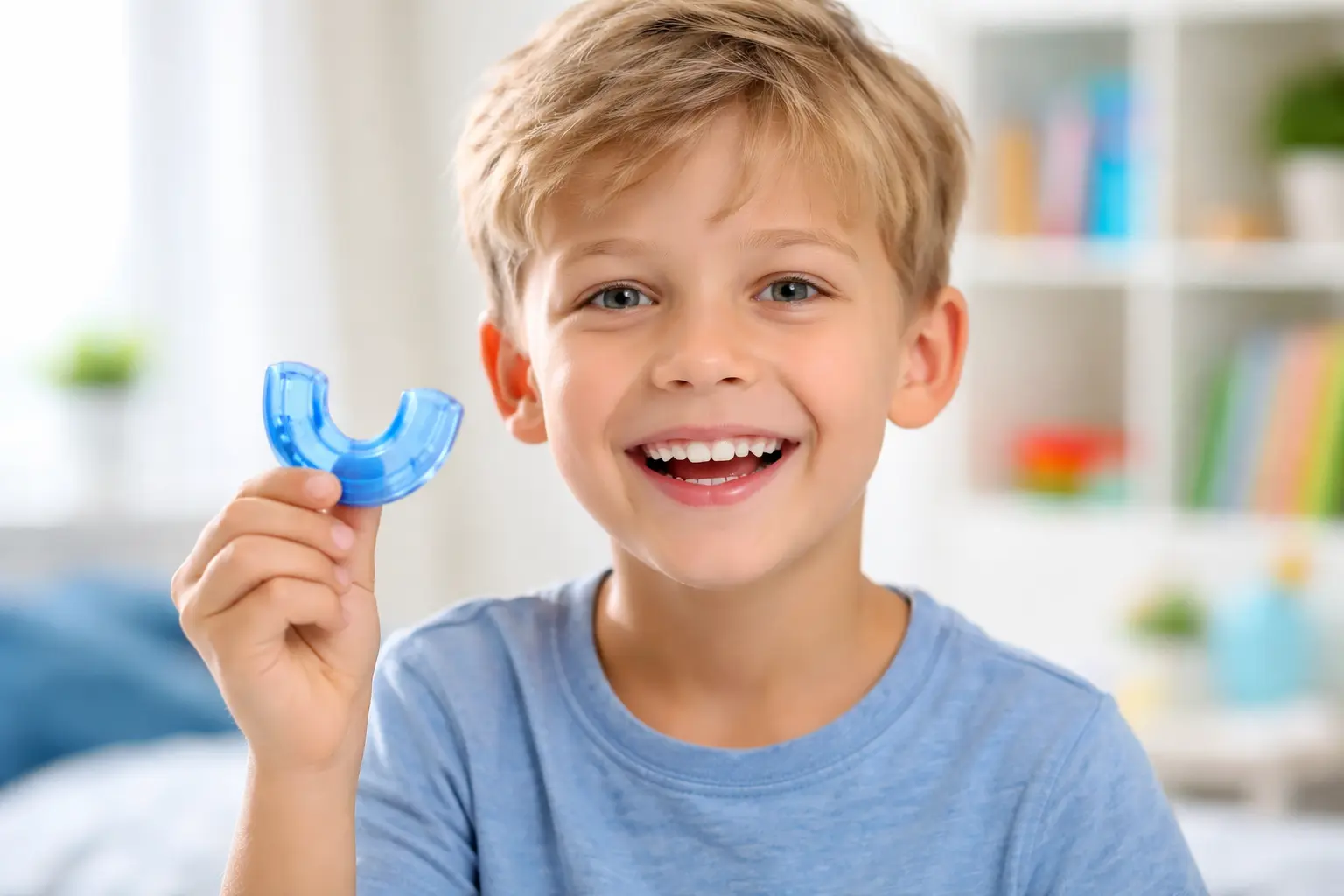
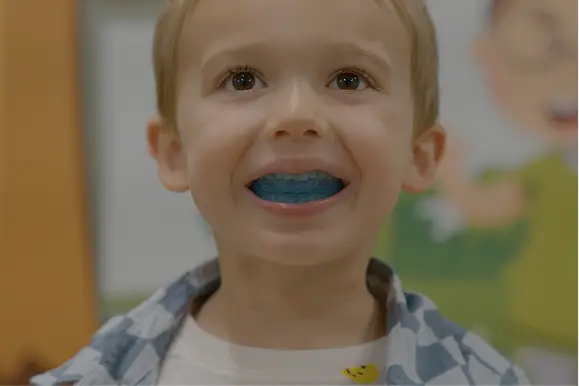
Easy to do programs. Life-changing results.
Appliance guided therapy fits effortlessly into your child’s day. No pain. No stress. Just healthier breathing, better sleep, and lasting growth from the inside out. Click the button below, take the quiz and find out if your child is at risk.
Get In Touch
With Us
- 100 Bradford Road Suite 200, Wexford PA 15090
Contact Our Team
Have a question? Send us a message and we’ll get back to you soon.